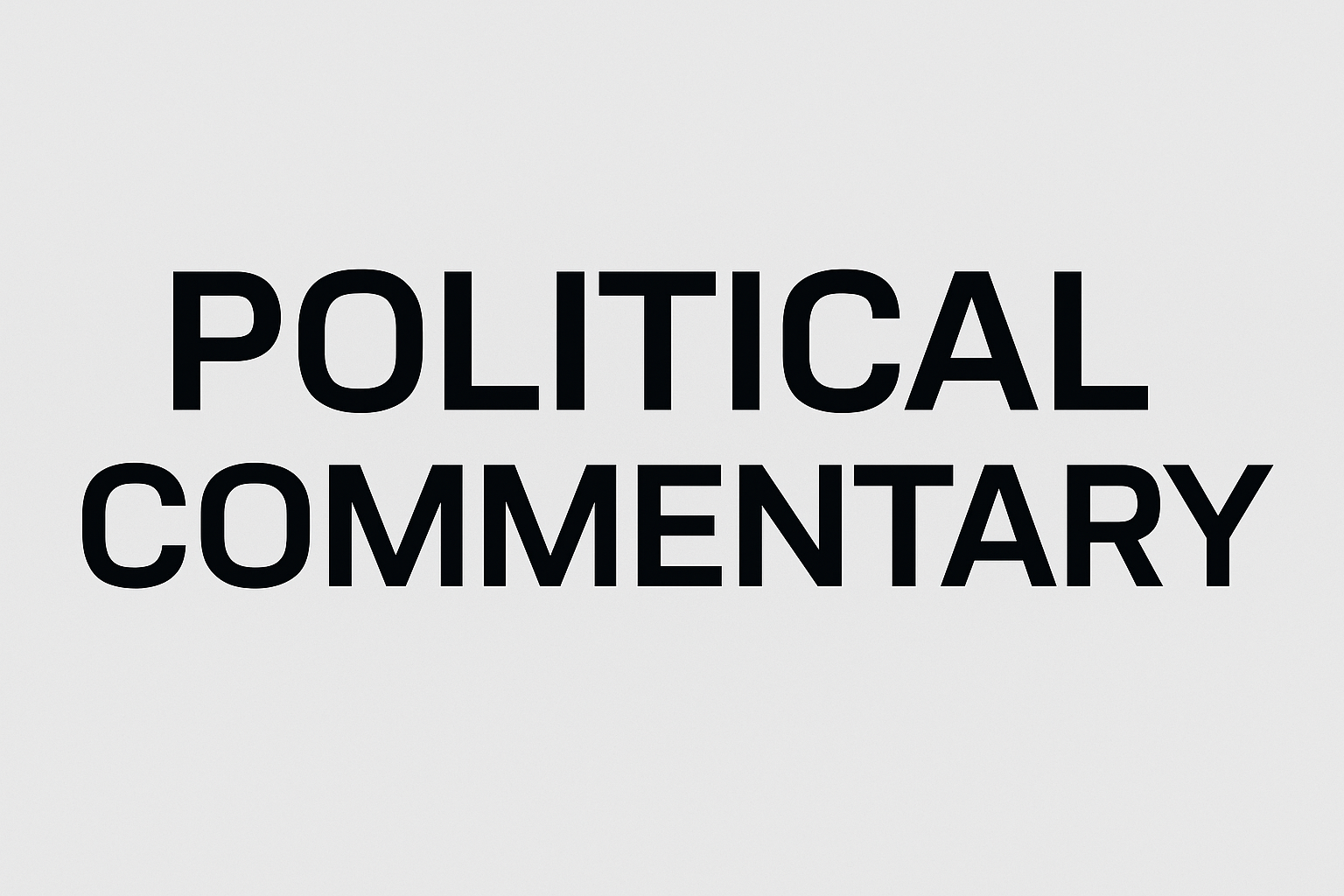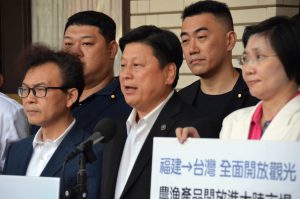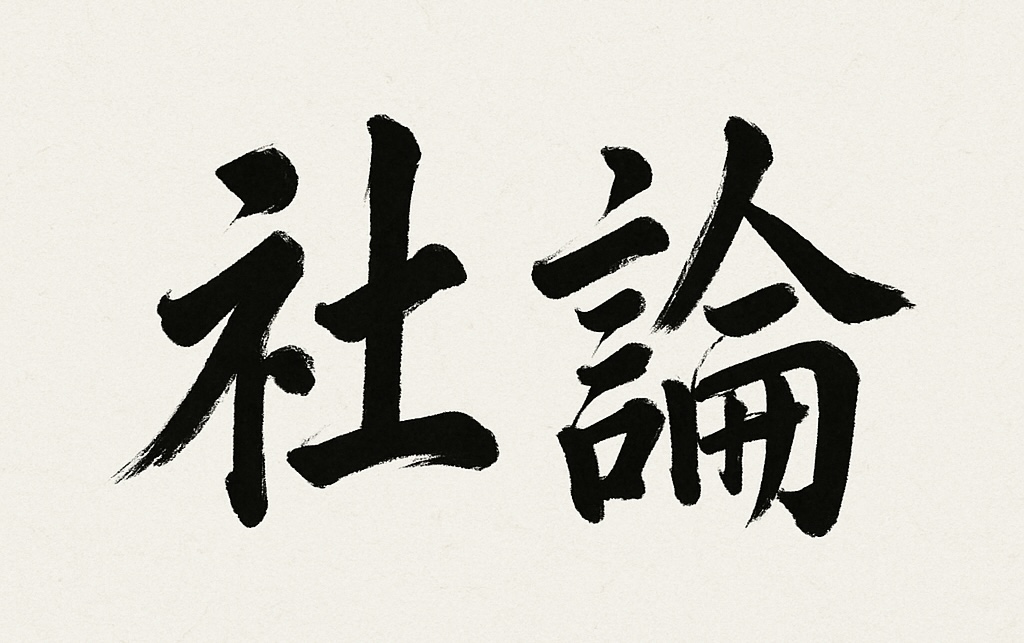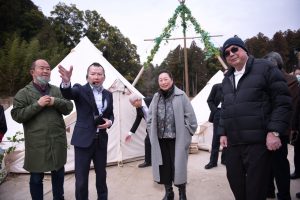[Political Commentary]
Democratic Progressive Party (DPP) Secretary-General Hsu Kuo-yung recently stirred controversy by claiming that “there is no such thing as Taiwan Retrocession Day,” further asserting that “Chiang Kai-shek was General Douglas MacArthur’s subordinate.” Such remarks are not only inconsistent with historical fact but also undermine the very foundation of the Republic of China (ROC) on Taiwan.
International treaties clearly established Taiwan’s retrocession
In the final stages of World War II, the 1943 Cairo Declaration explicitly stated: “All the territories Japan has stolen from the Chinese, such as Manchuria, Formosa, and the Pescadores, shall be restored to the Republic of China.” Two years later, the Potsdam Proclamation reaffirmed this principle and demanded Japan’s unconditional surrender.
When Emperor Hirohito issued his surrender rescript on August 15, 1945, Japan formally accepted these terms. On October 25, 1945, the ROC government held the surrender ceremony at the Taipei Public Hall, announcing Taiwan’s retrocession. This was not a mere ritual but the fulfillment of international law and postwar order. To deny retrocession is to deny the Cairo Declaration, the Potsdam Proclamation, and even the legal basis of Japan’s surrender.
Chiang Kai-shek was never MacArthur’s subordinate
Hsu’s statement that “Chiang was MacArthur’s subordinate” reflects a fundamental misunderstanding of Allied command structures. During WWII, Chiang Kai-shek was appointed Supreme Commander of the China Theater, covering China, Burma, and India. MacArthur, meanwhile, was Commander of the Southwest Pacific Area, mainly responsible for the Philippines and adjacent islands. These were separate commands, each reporting directly to the Allied Chiefs of Staff.
Furthermore, Chiang was not only a theater commander but also head of state as Chairman of the National Government of the ROC. In contrast, MacArthur, though a five-star general, was subordinate to the U.S. government. To suggest Chiang was MacArthur’s subordinate is absurd and an affront to the dignity of the ROC.
Outcry from scholars and political figures
Hsu’s remarks prompted strong rebuttals from multiple public figures.
Former National Taiwan University President Kuan Chung-ming warned that regardless of foreign views on Taiwan’s status, it is unacceptable for ROC officials to echo the “undetermined status” narrative, as it undermines the legitimacy of the state. He asked rhetorically: “If Taiwan’s status is truly undetermined, were all the ROC presidential and legislative elections just for nothing?” Kuan criticized those who deny retrocession as lacking national identity and indulging in colonial nostalgia.
Former legislator Tsai Cheng-yuan explained that the wartime command areas were independent, with Chiang leading a far larger theater and holding higher political and military rank than MacArthur. To call Chiang a subordinate, he said, is something “only a fool would believe.”
Taipei Mayor Chiang Wan-an also hit back, asking: “If Taiwan was never retroceded, then which country is Lai Ching-te president of today?” His pointed question highlighted the logical consequence: denying retrocession erases the legal foundation of Taiwan’s democratic system.
Other figures, including former legislator Kuo Cheng-liang, former Taipei Mayor Hau Lung-bin, and KMT Hsinchu County Party Chief Chen Chien-hsien, also voiced criticism, accusing the DPP of undermining national legitimacy with a distorted reading of history.
The meaning of retrocession for Taiwan society
October 25, 1945, marked the end of fifty years of Japanese colonial rule. Taiwanese were no longer subjects of the Japanese emperor but became citizens of the ROC. Though postwar governance involved tensions and missteps, the historical reality of retrocession cannot be erased. It represented a profound turning point: from colony to national territory, from defeated-subject status to restored citizenship.
For decades, Retrocession Day was a national holiday in Taiwan, celebrated in schools and society. The parades, ceremonies, and festivities reflected not only historical memory but also national identity. To deny retrocession is to deny the sacrifices of anti-Japanese resistance and the dignity of the Chinese nation.
Public opinion stands firmly against denial
According to an online poll conducted by China Times News Network, over 12,000 people participated. The results showed that 96% rejected Hsu’s claim, with only 3% supporting it. Comments from netizens were blunt: “Retrocession is a fact of history—denying it insults the people,” “Without retrocession, Taiwan would still be a Japanese colony,” and “Officials who deny national identity have no right to serve in government.” Public opinion thus overwhelmingly affirms the historical reality of Taiwan Retrocession Day.
Conclusion: History cannot be erased for political expedience
History is the foundation of national legitimacy and cannot be rewritten at will. Taiwan Retrocession Day is not only the outcome of binding international treaties but also the core basis for the ROC’s existence on Taiwan. If retrocession itself is denied, Taiwan risks falling into a vacuum of self-negation, leaving its sovereignty more vulnerable to international doubts.
Defending the historical truth of Taiwan Retrocession is therefore essential—not only to honor the sacrifices of the past but also to safeguard the legitimacy of the present. History is not a tool for political convenience; it is the root of national survival. Taiwan Retrocession was real, and it remains the cornerstone of the ROC on Taiwan. To deny it is not just wrong—it is dangerous.
中文






